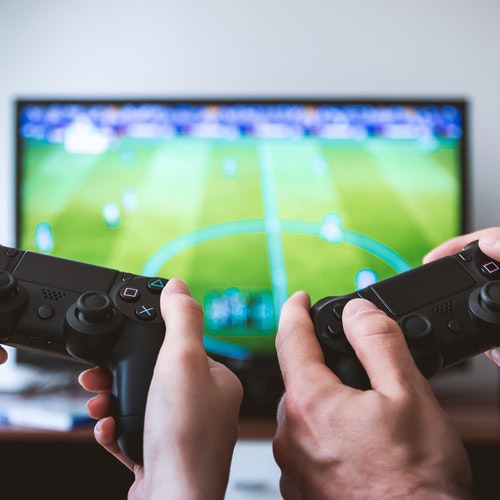Perhaps your child likes to play computer games on their tablets and devices. No harm right? Gaming addiction is real and here is what parents need to know about it so you can do your part and protect your child from being a victim.
Gaming addiction has officially been recognized by the World Health Organisation as a mental health condition. WHO’s International Classification of Diseases now lists gaming addiction. Internet Matters asked various experts to provide guidance on what gaming addiction is and what steps parents can take to protect children from developing the condition.
[Read: Heartbreaking! Young boy hangs self over game loss]
Children need to take a break from gaming. Doctors orders!
A GP has “prescribed” an 11-year-old boy a two-week ban from computer games such as Fortnite and Minecraft! Dr Amir Khan, from Leeds, said he issued the advice as he was concerned about the impact gaming was having on the boy’s life.
Cam Adair, founder of Game Quitters, said Dr Amir Khan’s message highlights the seriousness of gaming addiction. According to Mr Adair, gaming addiction “can be devastating” and while Dr Khan’s tweet may be “light-hearted”, advice to take a break was invaluable.
“I’ve no doubt that it will have a positive effect, even if it just helps him start to discover other activities in his free time,” he said. Mr Adair added: “People are gaming at such a young age, and gaming is so effective at fulfilling people in so many ways, that they don’t really know what else to do with their time.”
By taking a break whether it is three days, two weeks or 90 days it gives them an opportunity to create a contrast in their life between life with gaming and life without it. It helps people mitigate against gaming and make it not the only thing they know.”
Parental Involvement and Gaming Addiction
Knowing exactly when children just love games versus when they may be showing signs of addiction might be difficult. Parents should be on the look out for any child who neglects relationships, exercise, school work and personal hygiene in favor of playing games.
According to Andy Robertson a freelance games expert and dad, parenting has a big part to play when it comes to children and their gaming behaviors. Parents need to be present in the gaming world of their children.
It is helpful to play together, help set healthy limits and actively find a variety of activities for children to consume online. This approach, particularly started at an early age, will keep gaming safe and sensible for most youngsters. For more on how to protect your children online visit Patreon.com
[Read: Tips On How To Protect Your Children Online]
Parents, Screen Time Limit and Digital Detox
According to Dr. Elizabeth Milovidov, Law professor and Digital Parenting Expert. When parents see that their child won’t get off the tablet, gaming console or computer when called; screen balance and perhaps even a digital detox may be recommended.
The clinical definition of gaming disorder is “impaired control over gaming, increasing priority given to gaming over other activities to the extent that gaming takes precedence over other interests and daily activities, and continuation or escalation of gaming despite the occurrence of negative consequences.” It is important to note that this behaviour pattern has lasted at least 12 months and has resulted in difficulties with family, friends, socializing, education and other areas of functioning.
Parents need not panic if their children are a bit attached to playing games. However they should ask questions and note behaviors that could be a cause for concern. These include if your child is physically healthy and sleeping enough? connecting socially with family and friends? engaged in school? or pursuing other interests and hobbies?
If there are concerns with these then parents need to take steps such as
- establish screen balance guidelines
- carry out a digital detox
- find creative ways to allow games and tech time, balanced with outdoor or creative non-tech activities
- make sure that games are age-appropriate and content-appropriate
- notice how your children interact with their devices and games (aggressive, irritable, may mean that less screen time is needed)

Spotting the signs of Gaming Addiction
Psychologist, Dr. Linda Papadopoulos advices parents that playing video games is not something to worry about if it is done in moderation. Parents should be aware of the warning signs and take steps to control access and time spent.
When to worry –
- If children are talking about their game incessantly and they play for hours on end. Or if they get defensive or even angry and aggressive when made to stop.
- Some physical symptoms might arise from spending too much time online such as dry or red eyes, soreness in the fingers, back or neck or complaints of headaches. When daily needs like food and sleep are being disrupted this is a cause for concern.
- If you notice they appear preoccupied, depressed, or lonely as some games can be quite isolating. Should you spot any of these signs in your child it’s a good idea to address the issue as soon as possible.
Ultimately parents are in the best position to help their children have a healthy relationship with screen time. It is important to set limits when it comes to how long they play games. Do not allow them to have tech in their rooms especially at bedtime. Encourage alternative activities that make them engage with their peers in the real world.
if you are still concerned then seek the help of a professional counsellor.
For more on Technology and Parenting




